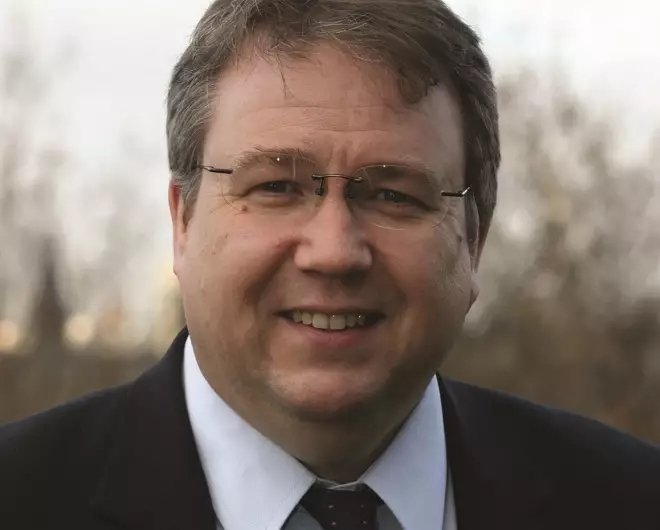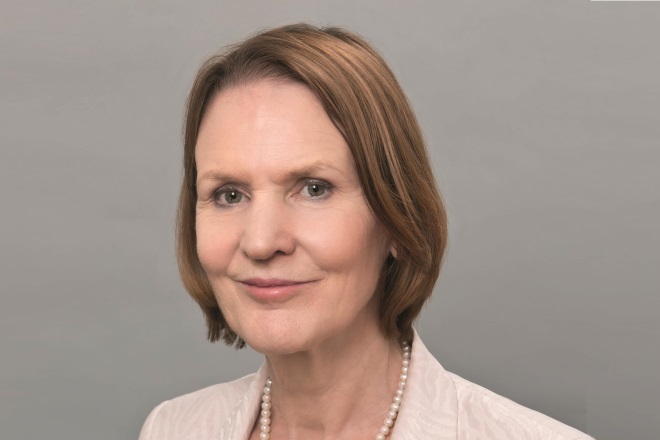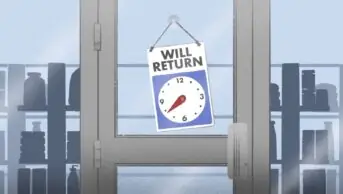
istockphoto.com
In December 2015, an open letter from the Department of Health (DH) and NHS England was sent to the Pharmaceutical Services Negotiating Committee (PSNC), which represents NHS pharmacy contractors. It revealed a series of ideas for reforms to community pharmacy and announced that the government intends to cut funding for community pharmacy in England in 2016–2017 from £2.8bn to £2.63bn, a reduction of £170m, which is more than 6%. This has been met with alarm, dismay and anger from the profession and a consultation is under way, which will now end on 24 May 2016 after a two-month extension was announced. The
Pharmaceutical Journal asked leaders of various pharmacy organisations — and beyond — how pharmacy should respond to the funding cuts.
Sandra Gidley, Chair of the English Pharmacy Board, Royal Pharmaceutical Society

Source: Royal Pharmaceutical Society
The cuts to community pharmacy contract funding and the DH’s consultation on further reform could have potential devastating effects on the sector if implemented without careful consideration. We are still lobbying for assurances that any further reforms to community pharmacy will be driven by moves to improve patient care and advice from pharmacists. Together with pharmacy trade bodies, we are taking every opportunity to educate and inform about the importance of the sector. Unfortunately, during this consultation period the DH has not been forthcoming with information for pharmacy organisations apart from the PSNC. We should all be privy to the same information if we are, as a profession, to be consulted properly so we can give a united response.
We would not want to see further cuts from the government in the future but that is a very real possibility, so there are many more challenges ahead. Work will need to be done after the consultation ends because that is when we can greatly affect what happens in future years. One thing we should focus on is ensuring that we make the most of the pharmacy integration fund, which, currently, has not been given sufficient investment (£20m for 2016–2017). We should certainly put pressure on the government to increase that funding.
I would suggest that the more people who understand the implications of these reforms and cuts the better. So it is worth pharmacists talking to patients. As for lobbying MPs, they should emphasise the positive impact that pharmacy offers and highlight that changes should only be made in the interest of patients.
Rob Darracott, chief executive of Pharmacy Voice

Source: Pharmacy Voice
It is clear that the proposed cuts have the potential to do serious damage to patient care and community pharmacy if the government fails to listen to what the sector has to say. So we have to make sure it is listening, and that the messages it receives are clear and well understood.
Like everyone, I am disappointed by the approach the government has taken in this consultation. It also seems clear that these proposals are not driven by the needs of patients, nor the necessity of maintaining an effective and resilient community pharmacy sector — but rather by the dictats of a seemingly intractable HM Treasury.
I’ve been encouraged by the response we’ve seen from the MPs we’ve spoken to, and the recent Westminster Hall Debate (23 February 2016) demonstrated to the government how valued pharmacies are as a core part of local communities. Community pharmacy owners’ roles are essential. Much of this interest has been driven by local contacts and I encourage them to keep patients energised, participate in the petition and let as many people know as possible about the government’s plans. It’s also important that they get to know what the plans mean to them and their business. Contact the local pharmaceutical committee to stay informed about the latest state of the negotiations.
Crucially, and despite the government’s plans, we still have power over our own destiny. We need to set out what we need to keep vital services running. We need to explain to the government the consequences of its decisions. And, above all, we need to demonstrate the value the sector already provides in relieving pressure on other parts of the system — to say nothing of the untapped potential that every government has recognised, but has not acted upon.
Dame Sue Bailey, chair of the Academy of Medical Royal Colleges

Source: Academy of Medical Royal Colleges
Cutting the pharmacy budget at a time when patients are being encouraged to make more use of pharmacists’ services for minor ailments and long-term conditions management makes no sense. The academy has long argued that if healthcare is to stand any chance of truly meeting the needs of the population in the years ahead then it must transition towards a more integrated service. In this regard, moves such as placing pharmacists in GP surgeries will be of benefit to patients because they create the kind of joined-up service we all need. Sadly though and all too often, we are seeing smart moves towards reconfiguration by health service leaders in one area, undone or undermined by budget constraints in another. We have just seen the same thing in public health, where on the one hand local authorities were given autonomy over many areas of public health service delivery, while on the other hand they saw a 7% cut to their budgets for essential services such as women’s sexual health clinics and smoking cessation services. As to what pharmacy should do to tackle the cuts, I am afraid the only answer is to speak up and keep on speaking up — whether that is with patients, local politicians or through pharmacy organisations — until this wrong is put right. Pharmacists are trusted by the people and communities they serve and they, too, can and should be mobilised in opposition.
It has to be made clear to the government that its proposals are not acceptable to the people who work in pharmacies and to the patients they serve. This is why campaign elements such as the MP postcards and the Downing Street petition are important. However, pharmacy also must present a compelling alternative narrative and a sector-led programme for change that meets the needs of patients now and in the future. In the long term, success is not just about being able to struggle through the current difficult situation with a view to coming out the other end unchanged; it is about adapting, improving and fulfilling the potential of the sector — this is what it means to thrive, not merely to survive.
Mark Koziol, chair of the Pharmacists’ Defence Assocation

Source: Pharmacists’ Defence Assocation
Alistair Burt, the minister with responsibility for pharmacy, has said the proposed cuts could result in up to 3,000 pharmacies closing, with smaller independents more likely to suffer. We must resist these proposals by focusing on the public and patient interest.
It is vital that the awareness of the public and MPs is raised as to the damaging impact these cuts will have on public services. The campaigns being developed by various pharmacy bodies are welcome, but they’re not enough. We must also grasp the issue of pharmacy clustering because this is our Achilles’ heel. When we met with the DH recently to discuss the cuts, we proposed that contractors should be incentivised to merge and be reassured that new entrants would not fill their previous locations. We were encouraged by the response to those suggestions.
In future, the pharmacy contract must take a much more sophisticated approach to the differences between independents and multiples than it does presently. Most importantly, instead of cutting patient-facing services, the government should scrutinise whether the continuation of vertically integrated wholesaler or pharmacy ownership is in the public interest. It should also look at whether regulating such arrangements could have the effect of releasing public funds, which could be used as an alternative to closing pharmacies.
To that end, we have asked the Health Select and the Public Accounts Committees to examine these arrangements. We have urged Burt to postpone any cuts until such enquiries have been held, allowing all stakeholders to make further representations.
Sue Sharpe, chief executive of the Pharmaceutical Services Negotiating Committee

Source: Pharmaceutical Services Negotiating Committee
We are involved at present in discussions with the DH and NHS England on the proposals set out in the 17 December 2015 letter, and we are seeking to understand the rationale for the various proposals, and to find ways to ensure that the services and value to patients provided by community pharmacies are recognised and expanded in future.
We cannot accept proposals that will jeopardise the services and supplies that community pharmacies provide to their patients. The government wants to develop a clinically focused community pharmacy service but cuts to pharmacy funding that will force contractors to cut staffing is about the worst way to do this.
The PSNC has rejected some of the proposals, for instance to use blunt instruments based on volume as a crude measure of the care provided by pharmacies, and we are working with the other pharmacy organisations to coordinate a national communications and political campaign in response to these proposals. This includes a raft of parliamentary, as well as media, work.
These are uncertain times and the government plans are worrying for pharmacy contractors. The sector needs to come together to demonstrate the value that community pharmacy can and should offer. All pharmacists and their teams can help with this, for example by attending a contractors meeting to discuss the implications of the government proposals; by talking to patients about the proposed cuts to get their support; or by contacting their local MP to express their concerns.
Clare Gerada, former chair of Clinical Board, Primary Care Transformation, NHS England (London Region), and former chair of the Royal College of General Practitioners

Source: Elizabeth Sukkar / The Pharmaceutical Journal
I feel very sorry for pharmacists. They’re in the same position as we GPs are where they are not valued for the amazing work they do as front-line clinicians in the NHS, including sorting out all sorts of problems for patients, such as medicines reconciliation and medicines use reviews, which no one could deal with if community pharmacies did not exist.
Nevertheless, like the rest of us in other healthcare sectors, community pharmacists should respond by identifying the areas only they can do and the areas they’re incredibly strong at. They need to be promoting the value of continuity and the value of being accessible.
I watched a news programme recently in which they talked about not wanting three pharmacies on the high street. Well, that is all well and good, but if they end up throwing the baby out with the bathwater and losing local pharmacy altogether, it’d be terrible for patients and for us GPs.
We need to make sure we have a local pharmacy for every few thousand patients.
Stephen Fishwick, head of communications at the National Pharmacy Association

Source: National Pharmacy Association
The National Pharmacy Association is leading the response of the independent sector to the DH proposals, but we’re pleased to be working closely with many other pharmacy bodies to present a powerful united front. We have set aside resources for a sustained and escalating campaign if necessary. This is about more than the funding settlement for 2016–2017. For us it is no less than a battle to keep the ‘community’ in community pharmacy.


